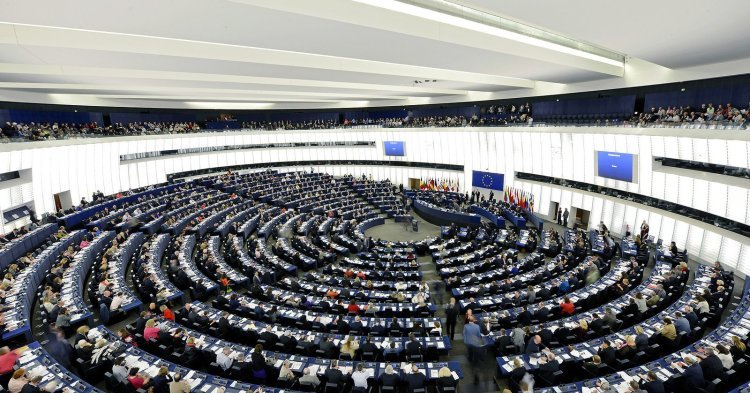Let’s move back: 15 November 2017 was certainly quite a banal day for most people, but not for the European People’s Party (EPP). Numerous MEPs of this party had the unpleasant surprise to learn that their colleagues from the Hungarian Fidesz party (Viktor Orbán’s party) had published a press release supporting Law and Justice (PiS), the ruling party in Poland, against Brussels’ threat to trigger the Article 7 of the Treaty of the European Union (TEU).
This provision of the Treaty allows the European Commission to suspend the rights of a member state which does not respect the fundamental values of the EU, referred to in Article 2 TEU. In the case of Poland, the freedom of expression and the independence of the judiciary are threatened. The same day, the European Parliament voted through a resolution condemning the “serious breach” of the rule of law in Poland, and recommending the triggering of Article 7. The EPP is divided on the question because of Fidesz MEPs who are full members of this “European” party.
The genuinely European parties, conspicuously absent from the Parliament
What does this story teach us? Aren’t the political parties’ internal tensions and stormy discussions (which surely occurred within the EPP this particular week) normal and characteristic of a vivid democracy? Things are very different in this case. Not only is the EU unable to ensure respect for the rule of law in its member states, but also no democracy exists to fight efficiently against the abuses on a EU scale.
Looking at the European Parliament’s hemicycle, one can see that the MEPs are gathered in transnational “political parties”, corresponding more or less to national political trends: the EPP’s Conservatives, the PES’ social democrats, the ALDE’s liberals, etc. Looking closer, one becomes aware that theses groups deserve to be called by any name but one of ’European political party’!
The national parties forming these groups sometimes defend very different positions. The Fidesz is a good example in this regard, as at the European level, it belongs to the same group as the Polish “Civic Platform” party, very critical of the PiS. The other “European parties” do not make an exception: the PES hosts both the French Socialist Party and the Romanian Social Democratic Party (PSD), whose ideological positioning is much more right-wing. The ALDE gathers both Guy Verhofstadt’s Open VLD, resolutely pro-European, and the VVD of Dutch Prime Minister Mark Rutte, which was not exactly Europhile during the 2017 Dutch legislative campaign.
As such, these political groups in the European Parliament are true patchworks, displaying all their contradictions during plenary assemblies where we can see that the votes are much more influenced by the national partisan affiliation than by the European one. Yet, the existence of political parties representing the European general interest is the sine qua non condition of a genuine European democracy.
The member states remain the owners of the “European narrative”
So, why are European political parties not represented in the Strasbourg Parliament? Because the European public opinion does not exist either. During the European elections, national considerations dominate the European citizens’ votes. Moreover, the member states have an interest in preventing the emergence of a transnational public opinion. Indeed, by controlling the “European narrative”, i.e. by writing the history of European integration according to what they want to highlight, national governments have a decisive influence on their citizens and can either take credit for successes of the Union, or put the blame on “Brussels” otherwise.
The poor number of European newspapers and media and their relatively weak weight compared to the national media is also a determining factor explaining the absence of this European public opinion. Yet, like European political parties, they are necessary for the creation of a truly European democratic life. From there, what can be done to encourage the emergence – although certainly very long – of this democracy and as such make a success of the European project?
Change for 2019!
Critics of this idea will reply that this would take a lot of time, and consequently that this would be utopian. The creation of the European supranational democracy should effectively take a few decades, but isn’t it what happened during the 19th century in France? Between the storming of the Bastille in 1789 and the establishment of the Third Republic in 1870 , democracy had to face numerous institutional shifts in a country whose various regions had strong identities, and where the national sentiment was not yet powerfully instilled in the citizens’ minds.
What if the beginning of this (long) process took place in the 2019 European elections? Even if the idea of a transnational list was rejected by the European Parliament (even MEP Elmar Brok, President of the Union of European Federalists at the time, voted against) and if the principle of Spitzenkandidaten is openly challenged by European heads of state, it is possible to rally the European citizens around transnational European issues, such as the economic and social crisis, tax fraud, climate change, or declining democracy. To this end, participation must be much stronger than during the previous elections. Furthermore, a high rate of participation could effectively counter the populist parties.
The emergence of a European public opinion will take much more time than a campaign for the European elections, but this emergence must take place to allow for a Europeanisation of national political parties, the ideological rapprochement of the different parties in the European Parliament’s political groups, and finally the definition of less heterogenous political groups. A transnational public opinion will also enable the limitation of the member states’ influence in the control of the European narrative. In any case, the citizens’ interest in European issues is present – only a concrete application is missing to initiate a movement towards a transnational democracy.






Follow the comments: |
|
